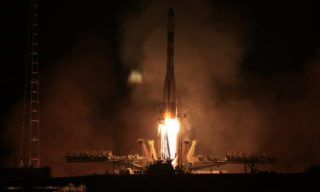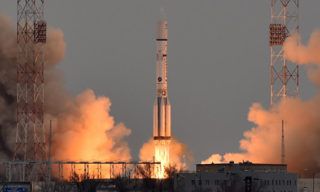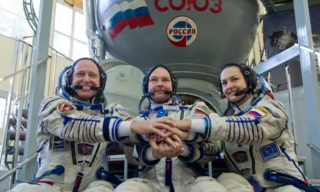The launch of Proton booster with Intelsat-31 telecommunication satellite was moved to TBD date because of technical reason, – Khrunichev Centre representative reports.
Earlier the spokesman stated that the launch was to take place on May 28 according to the schedule but told about the possibility of changes.
IntelsatDLA2 space device was made by Space Systems Loral (USA) against the order of Intelsat satellite telecommunication operator (USA).


















